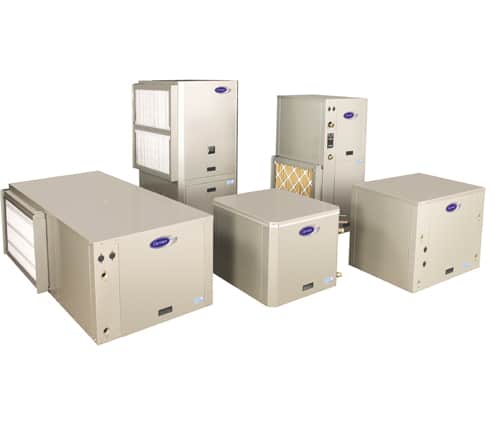It’s a calm evening in Charleston, South Carolina, and you’re settling in for a quiet night at home when suddenly — what’s that noise? It’s your heat pump, and it’s making a racket. Heat pumps are an essential part of many homes in our region, providing both heating and cooling to keep us comfortable throughout the year. But when they start making loud noises, it can be a cause for concern.
Different Types of Heat Pump Noises
1. Banging or Clanking
This could signify a loose or broken part inside your heat pump, such as a connecting rod, piston pin, or crankshaft. It might also indicate that the indoor blower or outdoor fan and its blades are out of balance and hitting other parts.
2. Hissing or Squealing
A hissing noise typically indicates a refrigerant leak, while a squealing sound might mean that the fan motor bearings are failing. Both of these issues can have serious implications for the functioning of your heat pump and should be addressed immediately.
3. Grinding
If your heat pump is making a grinding noise, it could be due to the motor bearings being worn out. This is a severe issue and could lead to the heat pump motor failing if not addressed promptly.
4. Clicking
While a certain amount of clicking is normal when the heat pump turns on and off, continuous clicking could be a sign of a defective relay or a failing thermostat.
Common Reasons for Noisy Heat Pumps
Heat pump noises can be caused by a variety of factors, including:
- Age: As heat pumps get older, their parts can wear out..
- Lack of maintenance: Regular maintenance is key to keeping your heat pump running smoothly. Without it, parts can become dirty or worn out..
- Loose parts: Over time, parts inside the heat pump can become loose, causing them to rattle and create noise.
- Refrigerant leaks: These can cause a hissing noise and should be addressed immediately.
When to Seek Professional Help
If your heat pump is making loud noises, it’s usually a sign that something is wrong. While some issues can be resolved with basic maintenance, others require the expertise of a professional.
It’s time to call in a professional if:
- The noise continues after you’ve performed basic maintenance (like cleaning or tightening loose parts).
- You notice a decrease in the efficiency of your heat pump.
- The heat pump cycles on and off more frequently than usual.
- You notice a sudden spike in your energy bills.
In South Carolina, and surrounding areas, we’re no strangers to relying on our heat pumps for comfort. When they start making loud noises, it’s not just a nuisance – it could be a sign of a serious problem.
Remember, when in doubt, it’s always best to consult with a professional. Heat pumps are complex machines, and trying to fix them yourself can often lead to more harm than good. Stay safe, stay warm, and don’t hesitate to reach out to local professionals if your heat pump starts making unusual noises.









Excellent! Please Rate us 5-stars
...and leave a helpful review.
Would you recommend Morelli Heating and Air?